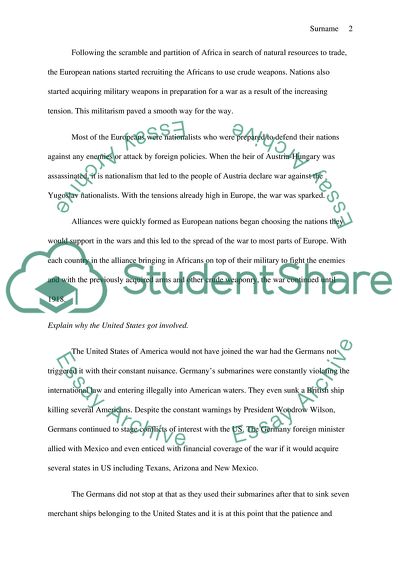Cite this document
(“World War I Essay Example | Topics and Well Written Essays - 1000 words - 2”, n.d.)
Retrieved from https://studentshare.org/history/1617756-world-war-i
Retrieved from https://studentshare.org/history/1617756-world-war-i
(World War I Essay Example | Topics and Well Written Essays - 1000 Words - 2)
https://studentshare.org/history/1617756-world-war-i.
https://studentshare.org/history/1617756-world-war-i.
“World War I Essay Example | Topics and Well Written Essays - 1000 Words - 2”, n.d. https://studentshare.org/history/1617756-world-war-i.


